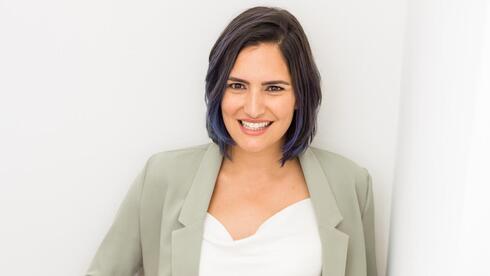Liron Azrielant, General Partner at Meron Capital, met her partner, Daniel Roditi, at Blumberg capital where they worked alongside each other on the investment team. Two years later, they started Meron Capital with a single LP (limited partner). “After two years as principal I got a lot of offers to join different places. In parallel, I got a weird offer to start a fund from an investor I barely knew. Basically, he said ‘I’ll bring the money, you bring the strategy and let’s start a fund’.”
Azrielant and Roditi needed to be vague about who their investor was as he is from the UAE and these were pre-Abraham Accords times. “It was a difficult situation to be in as with only one LP our continuity wasn’t guaranteed. When you have 30 Investors and one leaves, it’s no big deal. However, when you are relying on just one it is a whole other story. In 2020, we had our first two exits and the Abraham Accords were signed, which were a trigger for us to go out and raise our second fund. In 2022, we raised Meron 2, and that made a huge difference, we were truly on our own.”
1 View gallery


Liron Azrielant, General Partner at Meron Capital.
(Nir Slakman)
Meron Capital was founded back in 2017 and has two funds, the first is a $50 million fund, and the second is a $55 million fund. They invest in early-stage pre-Seed and Seed startups and their specialty is enterprise software, “basically everything that has a core tech advantage” according to Azrielant. They also have 13% female-led portfolio companies, meaning startups with a female CEO.
Following her service at the prestigious Talpiot program, Azrielant studied at MIT and began her career specializing in Private Equity (PE) in the U.S. After six years she returned to Israel and found her way into venture capital. “Upon returning to Israel I also decided I want to move to the buyer’s side, advising is nice but it is all done through powerpoint, there is no follow through or ownership. I remember looking into PE in Israel, but here the industry is different, I was used to billion dollar deals and in Israel, deals like that are almost never done through Israeli buyers. So, I began looking into venture capital and found it to be a much better fit. In VC’s you get to apply a lot of soft skills that are missing in PE.”
CTech’s She-VC series follows the stories of various female partners and senior managers in venture capital funds in Israel. Only 16% of partners in Israeli venture capital firms are women, and only 9% are investing partners. This poses a liability regarding how many female founders will be able to receive investments and it speaks to the industry as a whole.
Do you feel you were treated differently as a woman in the industry?
Azrielant chuckles and recalls: “In the past, I was asked ‘when is Liron joining the meeting’ as they were expecting a male named Liron? And, to this day, I get asked ‘who is the manager, just you?’ And when I reply that I have a partner, I am asked if he is the one making the decisions.” Azrielant adds: “My partner is five years younger than me and that too can get people confused. Some people assume the money comes from one of our parents.”
Another issue Azrielant identified is the fact that the industry is based on relationships and that can sometimes be difficult with the opposite sex. “I was sitting with an investor I appreciate who is great at closing deals. We were talking about how to close deals with founders and he said he once came to a founder’s house at 11 pm during Covid, when everything was closed, and I’m thinking ‘shit, that’s not something I can do’.”
Is there anything that can be done to solve the issue of the lack of women in VC’s?
“I think the best way to solve it is through awareness, however it is a pendulum. People might try to overcompensate and do things like declaring they are only looking for a female partner. That is bad for the woman who gets selected as she has an asterisk next to her name from the start. I wouldn’t want to work at a place that announces they only interview women. It would mean that I am seen as the best female for the position, rather than the best candidate.”
When asked if she is doing anything active to change the situation, Azrielant replied: “I owe it to myself and my investors to always invest in the best founder I can find, regardless of gender. However, I draw more female candidates as that is who I interact with, I try to see more women and expand the top of the funnel.”
Credit: Source link


Comments are closed.